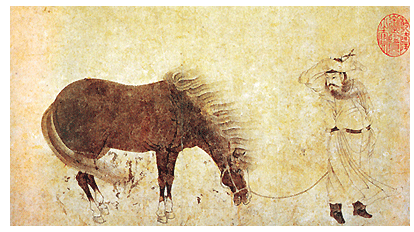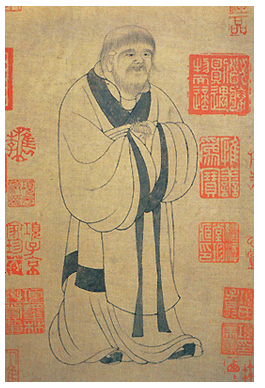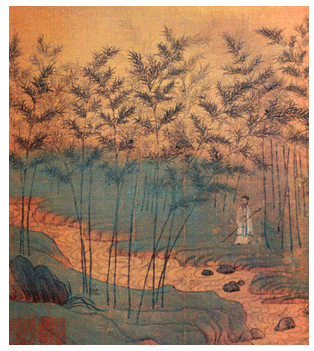- Prelude
- Editorial
- A Conversation with Jagdish Swaminathan
- Seeing is Very Important………
- Tormented Delineations and Violent Deformations
- Bikash Bhattacharjee: Subverting the Seen
- Bridging Western and Indian Modern Art: Francis Newton Souza
- Contesting National and the State: K K Hebbar's Modernist Project
- The Allegory of Return into the Crucial Courtyard
- Knowing Raza
- The Old Story Teller
- Beautiful and Bizarre: Art of Arpita Singh
- Feeling the Presence in Absence! Remembering Prabhakar Barwe
- Waterman's Ideal Fountain Pen
- Peepli Live: the Comic Satire Stripping off the Reality of Contemporary India
- Age of Aristocracy: Georgian Furniture
- Faking It - Our Own Fake Scams
- Scandalous Art and the “Global” Factor
- The Composed and Dignified Styles in Chinese Culture
- Visual Ventures into New Horizons: An Overview of Indian Modern Art Scenario
- The Top, Middle and Bottom Ends
- Top 5 Indian Artists by Sales Volume
- What Happened and What's Forthcoming
- The Month that was
- NESEA : A Colourful Mosaic
- Mumbai Art Sighting
- Art Events Kolkata
- Musings from Chennai
- Art Bengaluru
- Khoj, Kolkata Boat Project
- What a Summit!
- Ganesh Haloi at Art Motif
- The Other Self by Anupam Sud at Art Heritage, New Delhi
- Baul Fakir Utsav at Jadavpur
- Printmaking Workshop
- World's Greatest Never Before Seen Toy and Train Collection
- Previews
- In the News
- Christies: Jewellery Auction at South Kesington, London
ART news & views
The Composed and Dignified Styles in Chinese Culture
Volume: 3 Issue No: 13 Month: 2 Year: 2011
Across the Border
by Wong Tse Mei
The literati paintings are the orthodox traditional paintings in China. As implied by the name, they are created by the people who are well-read, or are the literati and belong to the officialdom or bureaucracy.
The construct of traditional paintings at the hands of scholarly officialdom, develops a unique style which not only involves poetry and literature, but also associates with the ideology of the refined gentlemen. Sentiments and acquired knowledge of the man-of-letters embodied in the paintings exude from the tips of the brushes which are loaded with ink of delicate tonal modulations.  The brush and the manipulating hands interpenetrate, and then the individual aesthetic inclination with subtle emotion produces the painting of spontaneous idiosyncrasy.
The brush and the manipulating hands interpenetrate, and then the individual aesthetic inclination with subtle emotion produces the painting of spontaneous idiosyncrasy.
Through such an artistic realm, in which there is the meaningfulness and reserve in it to settle the soul and the body, the spiritual needs of calmness and composedness could be attained. A kind of remote sentiment is imported in the paintings for the refined gentlemen to give vent to their feelings or their stirring of emotions to be expressed, whenever they engaged themselves in their recreation off their official duties or finished readings. These kind of feelings incubated slowly in their minds are similar to the rare vintages stored in the wine vaults for a long time and they are so mellow and extraordinary that they are not easily found in the general markets. In Chinese history, Chao Meng Hu (1254-1322) is a great artist possessing the extravagant magnanimity and such disposition reflects in his works of art.
The general public recognized Chao Meng Hu for his brilliant calligraphy; we also know that when Southern Song Dynasty had perished, the Yuan Dynasty took the regime. In this critical juncture, Mr Chao being a member of the royal clan, was criticized by others. As a consequence, his calligraphy was deemed too dainty and was devalued unjustly. Perhaps thus historical situation, an amateur artist with the influential official position in court, drove him to immerse himself in his pursuit of arts with the unmatchable enthusiasm and devotion to release his pent-up emotion. From the painting of his horse, we could see that the depicting lines of it is invested with strength despite the seemingly delicate of them. The succinct manner establishing an air of simplicity, he stripped away all minor visual elements; the precise lines were used with more concern for representational necessities indicating hair, muscles, tendons and bones beneath the skin with the subtle variations of the lines.
Furthermore, the pertinent perceptual qualities of precision is not only as clear-cut as the perceptual features that carry it, but the briefly outlined contour also encompassed the signs of vitality in it. By looking at the local part, the way of representing the mane at the forehead and neck make them look soft and glossy. Just by a few strokes, the short hair under the chin, the eyelashes are well organised and echoes with the other part of the head. Putting around the head is a thin piece of leather with the little knot and the small metal components, which are appropriately rendered but the bridle is not for practical use as it is loosely attached to the head demonstrating its graceful curve, without the purpose of tightening it for driving.  The rest part of the meticulous delineation is neat with nuanced variation by the control of the inward mental force. It is something more than the mere linear drawing, for the whole configuration of brush and ink is so leisured, so graceful, that it is the leading model of refinement of the literati painting.
The rest part of the meticulous delineation is neat with nuanced variation by the control of the inward mental force. It is something more than the mere linear drawing, for the whole configuration of brush and ink is so leisured, so graceful, that it is the leading model of refinement of the literati painting.
The traditional Western art shows the fidelity to nature and assumes a scientific attitude to view our world, and the motive power for creation originates from the willpower of the individual. Such as Da Vinci the paragon of great master, a fount of wisdom, who was not content to express what the naked eyes could see, he made a thorough inquiry of the internal structure to understand the construction and function of the things he was depicting and at the same time could organize complex perceptual patterns with the utmost clarity. It is said that he had dissected dozens of bodies and his manuscript confirmed the records with illustrations and propositions as the reference to articulate the visual idea of his own. Therefore painting is a process for him to explore all things under the sun, so it took him several years to finish a work of art which was the outcome of his efforts and patience.
The cosmological conception of Chinese is established in two dimensions: the space of our dwelling places ( ) is the epitome of the vastitude of the universe; going out and coming back to the dwelling places is the concept of time in the universe ( ), From the taking turns of going out and coming back, Chinese people deduce that the space and the time of the universe is an organic whole. In ancient time, common people's concept of space and time was as that “when the sun rises, go out to work; when the sun sets, come back to rest.” The endless rotation of the sunrise and sunset, the blossom and languishment of flowers, the change of four seasons are purposeful scenes towards the literatus. They grasped the profundity in these phenomena with their hearts and sensed the rhythms of the cosmic space and time and bosomed these rhythmic repetitions to savour. The prime minister of Song Dynasty Mr Yan Shu's (991-1055) classic poems are famous through ages, and one composition is much more well- known than the others for its simplicity and insightfulness, and a couple of it recorded his penetrative sense about the action of time to our world, “The flowers look the same year after year, but the person is not the one of the previous year.” This kind of perspicacity enabled the literates with self-cultivation to be calmly symphonious with the rhythmical rotation of life-force.
Therefore the horse depicted by Mr Chao is constructed with mellow and classically elegant lines, seemingly effortless. There is no preparatory work to dissect horses as Da Vinci would have done to help him to shape what cannot be seen. The sophisticated wisdom merges the course of life with the cosmic law of rhythm,  and the refined official could wield his brush with cadence in the void of aplomb, and freed himself from the cramped life. The brief lines do not mean that its content is meager. It was Mr Chao's fate to have qualm and conflict in his whole life, but from his masterpieces we could not find any personal anguish or feelings of melancholy in them. Viewing his works of art, we sympathize with the rhythmic and self-contented lines which are resonating with the heart's chord of a composed intellect. It is the outcome of the sincere seeker for the truth of the analogy between the harmonious macrocosm and the concordant responses of our spirits.
and the refined official could wield his brush with cadence in the void of aplomb, and freed himself from the cramped life. The brief lines do not mean that its content is meager. It was Mr Chao's fate to have qualm and conflict in his whole life, but from his masterpieces we could not find any personal anguish or feelings of melancholy in them. Viewing his works of art, we sympathize with the rhythmic and self-contented lines which are resonating with the heart's chord of a composed intellect. It is the outcome of the sincere seeker for the truth of the analogy between the harmonious macrocosm and the concordant responses of our spirits.
Many of the unfortunate literati with the disturbed minds would show an element of abjection, or narrow sense of self-pity in their works. The unreconciled individual's moodiness just can voice its own grievance in a restricted space. There are also some genre of art which ignores the nature of human existence or the mortality per se; the vocabulary of artistry, the vacuous lines, is used with more concern for the pictorial, ornamental necessities, devoid of the interaction and resolution between underlying order and the irrational variety of clashes happening in this pace-time continuum. When Mr Chao used the lines for his composition of a painting as though, plucking a string instrument. The dispassionate nature of the universe, the composure and dignity are his characteristic style.